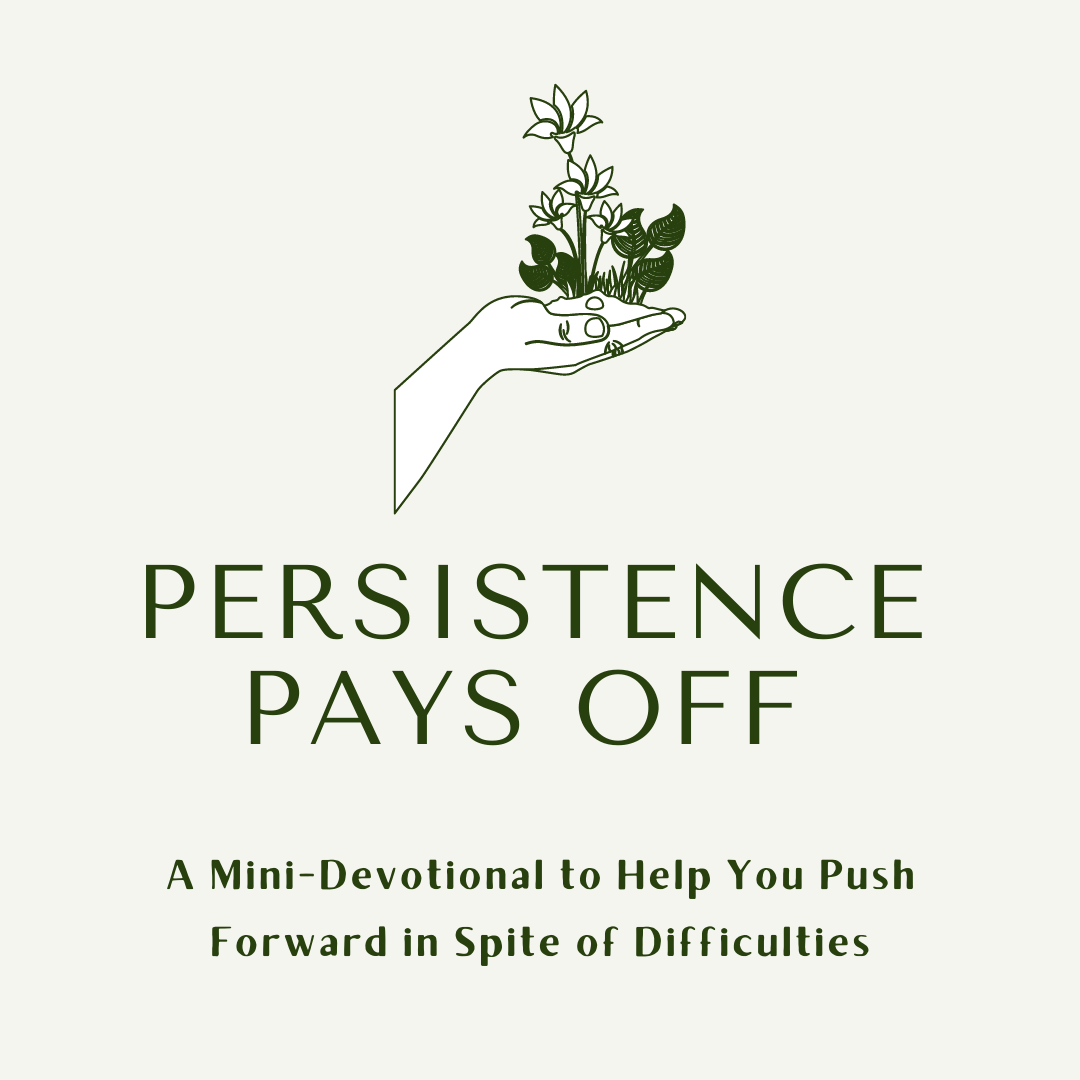It's Okay to Cry: Cultivating Compassion for Our Hearts During Seasons of Grief
/Photo by Priscilla Du Preez via Unsplash
Sometimes our friends and family, and even our churches, send messages that can make us feel bad about expressing sadness. We’re told to “cheer up,” “look on the bright side,” and “stop dwelling on the past.”
But does God really want us to repress our sorrow or hide our tears?
To help answer this question and explore what the Bible really teaches about grief, I wrote an article entitled It’s Okay to Cry: Cultivating Compassion for Our Sorrowing Hearts.
It was originally published in The Joyful Life Magazine, and I want to share it with you today. If you’re in a season of sadness (or know someone who is), I hope you’ll give it a read. You can find the complete article below.
As always, you are in my thoughts and prayers, and I’d love to hear from you! You can contact me here or through the comment section below!
In purpose and faith,
It's Okay to Cry: Cultivating Compassion for Our Sorrowing Hearts
I had already been traveling for nearly 24 hours when I missed my final flight to Greenville, South Carolina. Winter storms had delayed my connecting flight, and now, to my horror, I was spending the night in the Atlanta Airport.
As I settled into a vinyl seat, tears surged silently down my face. I felt self-conscious, but I couldn’t seem to stop the flow. I feared—and maybe a tiny bit of me hoped—that someone would notice my distress and offer comfort. As time passed, it became clear that my fellow travelers either didn’t notice or didn’t care. So, homesick and exhausted, I sat alone amidst a sea of stranded strangers, weeping like an ornamental fountain and longing for the comfort of my own bed.
When a friend recently shared how embarrassed she felt about shedding tears at church, memories of my own crying-in-public episodes came galloping forth. There, leading the cavalry was the Atlanta Airport debacle. Then there was that time I cried in front of my English professor. And that time I cried in a meeting at work that included not only my counseling colleagues but the executive director of the agency herself. And there were those occasions—more than I can count—when I too have cried in church.
Though some of the tears I’ve cried have been happy tears, many have been tears of grief. Particularly during seasons when my crying episodes have been more frequent, like my friend, I’ve felt embarrassed. I’ve worried that others might judge me as weak, overly emotional, or even unstable. I want to appear as if I have things together, and nothing says, “I’m not okay!” more clearly than crying.
HIDING OUR TEARS
Why is crying—a natural response to distress—so disconcerting?
As children, we may have gotten the message that crying is disruptive or manipulative. Our culture may command us to “chin up,” “cheer up,” or “toughen up.” Even our churches may directly or indirectly convey the message that crying is not okay. During times of sadness, we may told to “have faith,” “look on the bright side,” or “stop dwelling on the past.” The implication is that our tears need to be tethered and our feelings brought “under control.”
These and similar messages may lead us to avoid expressing sadness and hide our tears from others. We may even stuff our emotions to the point that we ourselves are hardly aware of them.
BOTTLE OF TEARS
If we look closely, though, we find the Bible reveals a different attitude toward tears. In Psalm 56, David sang of God: “You have kept count of my tossings; put my tears in your bottle. Are they not in your book?” (Psalm 56:8, ESV). What a tender picture! Our tears matter to God. Every one counts. Not one misses His notice. He never looks at our suffering with disdain, but only compassion.
In another Psalm, David said, “When the righteous cry for help, the Lord hears and delivers them out of all their troubles. The Lord is near to the brokenhearted and saves the crushed in spirit” (Psalm 34:17-18, ESV). Our broken hearts don’t repel God. Rather, they cause Him to draw even closer to us.
I love that King David, a fierce warrior and mighty ruler, is the one who penned these words about God’s concern for our hearts. As tough as he was, David was clearly an emotional man who had firsthand experience with grief and tears.
In addition to David, the Bible tells of other men and women of faith who weren’t afraid to cry:
Abraham wept after the death of Sarah (Genesis 23:2).
Joseph cried loudly when he was reunited with his long-lost brothers (Genesis 45:1-3).
Samuel’s mother, Hannah, cried bitterly while praying for a son (1 Samuel 1:10).
Jeremiah is known as the “weeping prophet” and the “prophet of tears.”
And then we have Jesus Himself who was a “man of sorrows” and “acquainted with grief” (Isaiah 53:3, ESV).
WHY JESUS WEPT
There are several places where the Bible mentions Jesus crying, but perhaps the most well-known is when He wept at the tomb of Lazarus. John tells us, “When Jesus saw her [Mary] weeping, and the Jews who had come with her also weeping, he was deeply moved in his spirit and greatly troubled. And he said, ‘Where have you laid him?’ They said to him, ‘Lord, come and see.’ Jesus wept” (John 11:33-35, ESV).
I used to think that, like Mary, Jesus was crying over Lazarus’ death. But as I’ve meditated on this story, I’ve come to believe otherwise. We know from previous verses that when He arrived at Lazarus’ grave, Jesus already knew that Lazarus was dead, and He already knew that He was going to resurrect Lazarus. With this knowledge, rather than lamentation, one might expect Jesus to have an attitude of celebration about the miracle He was about to perform.
So what prompted His tears? Look again at what John wrote: “When Jesus saw Mary weeping…he was deeply moved in his spirit…Jesus wept.”
Jesus didn’t weep because Lazarus was dead; rather, Jesus was deeply moved when he witnessed Mary’s pain. It was her weeping that prompted his own. When He saw His friend suffering, Jesus didn’t chide or try to cheer her up. He didn’t try to explain. Rather, he entered into her grief. He shared her sorrow. He created space for her to express what she was experiencing.
What Jesus felt for Mary, He feels for us. And what Jesus did for Mary, He wants to do for us. He invites us to cultivate compassion for our sorrowing hearts.
CULTIVATING COMPASSION
How do we develop this countercultural approach to our tears?
We can follow Jesus’ example and simply acknowledge when we feel sad in the same way we would do for a child or a close friend.
We can accept that grief is a gateway to healing and that sorrow can solicit the support we need to recover.
We can recognize that shedding tears is one of the most honest things we can do. There is no pretense in grief. Our raw vulnerability invites intimacy with God and our loved ones. It creates space for conversation and room to untangle the questions and confusion that may be intertwined with our tears. Sharing our tears with God declares our trust in Him, a testament that He is bigger than any grief we face and that it’s in His arms we choose to find comfort.
We can remember that, when we cry, we are in good company. Our tears don’t diminish our faith.
These simple actions can be powerful avenues of healing and growth for ourselves and for the people God places on our path. As we approach our hearts in a gentler way, we’re able to enter more deeply into the life of our own souls, as well as those near to us. As we connect to others in this way, we’re better able to share the comfort we ourselves have received from God.
A JOYFUL EXCHANGE
When it comes to sadness, our culture may say stuff it. Our family may shrug it off. Our church may minimize it. But whether we’re crying in an airport, a grocery store, or a sanctuary, Jesus will never turn away from our sorrowing hearts. He knows the fragility of our human form. He understands the wear and tear, the tension and the trauma of living on this fallen Earth. Our tears are His treasures.
So when those tears come, extend compassion to yourself and take courage. Remember, it’s okay to cry. And remember this: God is the God of the joyful exchange. While He certainly empathizes with our sadness, He doesn’t want us to remain in pain. He promises to give us “gladness instead of mourning” (Isaiah 61:3, ESV). As we lean into His welcoming arms, we can find comfort for today and hope for tomorrow. 🤍
This article was originally published in The Joyful Life Magazine.
P.S. Looks like you’re interested in pursuing a life of purpose and faith!
I’d love to send you more great (and free!) encouragement and tools to help you on your journey. Just click here to join my email list and become part of my online community.
As a subscriber, you’ll also gain access to my free resource library (see below for a peek at what’s in there now!), get opportunities to enter my giveaways, and more! Sign up here!
I wrote this post because I’m on a mission to encourage and equip women to live the life of faith, passion, and purpose that we were made for. You can help make a difference by sharing this post with a friend (or friends!) who you think would be encouraged or inspired by it. Thanks!
Disclosure of Material Connection: Some of the links in the post above are “affiliate links.” This means if you click on the link and purchase the item, I will receive an affiliate commission, with no additional cost to you. I only recommend products or services I believe will add value to my readers. I am disclosing this in accordance with the Federal Trade Commission’s 16 CFR, Part 255: “Guides Concerning the Use of Endorsements and Testimonials in Advertising.”























